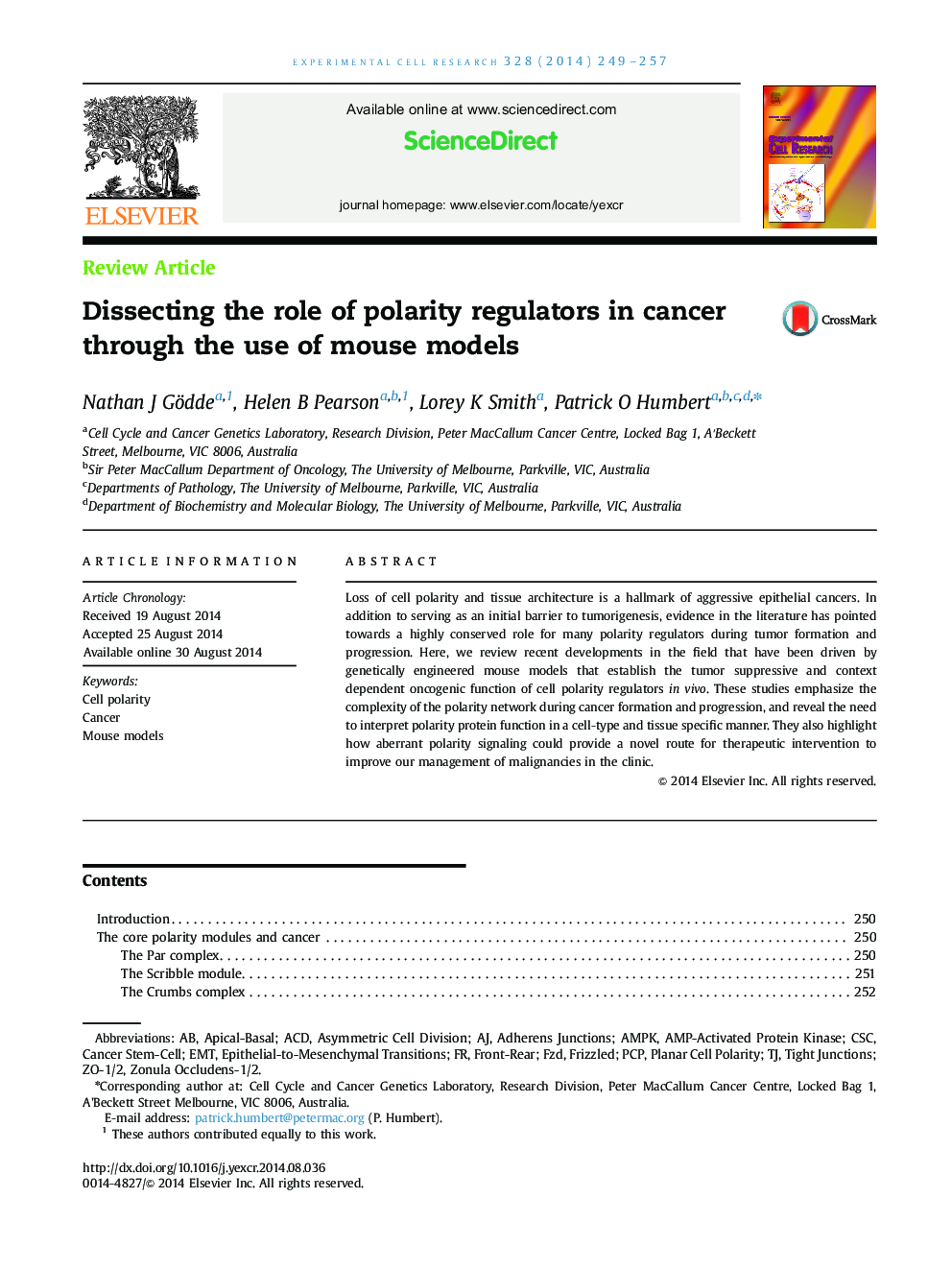| Article ID | Journal | Published Year | Pages | File Type |
|---|---|---|---|---|
| 2130260 | Experimental Cell Research | 2014 | 9 Pages |
Loss of cell polarity and tissue architecture is a hallmark of aggressive epithelial cancers. In addition to serving as an initial barrier to tumorigenesis, evidence in the literature has pointed towards a highly conserved role for many polarity regulators during tumor formation and progression. Here, we review recent developments in the field that have been driven by genetically engineered mouse models that establish the tumor suppressive and context dependent oncogenic function of cell polarity regulators in vivo. These studies emphasize the complexity of the polarity network during cancer formation and progression, and reveal the need to interpret polarity protein function in a cell-type and tissue specific manner. They also highlight how aberrant polarity signaling could provide a novel route for therapeutic intervention to improve our management of malignancies in the clinic.
